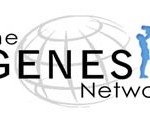The doors to collaboration were swung open as the Brown Alumni Group of Miami hosted the GENESIS Network this past Saturday, July 17th in Miami Beach.
A diverse group of uniquely passionate individuals gathered to listen as GENESIS founder, Adam Swartzbaugh, shared the experiences, observations and insights that have collectively shaped the structure and mission of this organization.
With audience responses running the gamut of human emotion, it was quite the presentation! I’m familiar with the many ‘behind-the-scenes’ stories of children with broken souls and stolen innocence. However, it is the overwhelming sense of humanity and hope that prevails as you listen to the one about a boy and a beaten down little dog becoming a catalyst to a behavioral shift within a community…How the power of perception – a simple introduction to a better way – can ultimately change the course by which a life is lived…or even saved.
That little dog, a daily target of random kickings and errant rocks, reinforced a passionate belief that it does only take one to make a difference. A few minutes of guidance from Adam resulted in a group of children looking at this creature with new eyes – suddenly it was no longer ‘ugly and useless’ but ‘soft, fuzzy and lovable’.
The following day, one of these kids witnessed further injustice against the little puppy by yet another group of children. The boy fights through the crowd, swoops the dog up into his arms and fervently enlightens his peers of this little dog’s value on earth – the benefits to loving him and even respecting him as another living creature. Puppy’s days as a soccer ball are over and a community’s younger generation has experienced a shift in a collective view.
Of course, the beauty in all this goes beyond fighting for the liberation of subjugated canines in Thailand. It lies in the power to change or inspire a course of action by sharing an idea, a vision, no matter how-off-the-wall it may seem.
As I spoke with guests, I heard everything from urgent needs to participate in the decommissioning of international trafficking circles and educators hungry to work GENESIS programs into their own curriculums, to young students ready to board the next plane to wherever they could be of use or desiring to start their own local revolutions. Really, some great stuff!
These are the ideas and visions that plant seeds that transform people,strengthen communities and brighten futures. It’s the ‘putting them into action’ that makes them spread like wildfire. This is one of the most wonderful elements of the Network. Collectively, we have the tools to make unbelievably impressive changes in this world. By way of social collaboration, everyone in that room had (and has) the potential to make tangible the visions they shared that evening.
The GENESIS Network has presented us with the tools many have long searched for, complete with the opportunity to witness the results of our efforts. The peace of mind that should go along with the concept of working with and supporting such projects, is once again, with the people. What we’re doing is making a difference and we are seeing it first hand.
I attended this event as a member of an organization – the work and concepts of which I’ve long believed in and supported. Sharing an evening with these people – some of whom I believe will be sharing their own stories in the future, about a school they hammered the final nail into, or of the family enrolling their child into school thanks to a mango crop they helped to plant – seemed to bring it all full circle. It is a level of humanness rarely felt as we run through our days, linked in and tuned out, swerving through traffic and schedules and crashing, exhausted, at the end of the day.
Witnessing hearts and minds opening and ideas unfolding makes all else fade, if only for moment. We realize that the world can be changed in a lifetime and this great desire to be part of something ‘bigger’ keeps growing. And why in the world would we not start now?
The opportunity is here and it is ours in whatever way we decide to make it our own.
View the GENESIS Events Page for upcoming events in your area.
 Lauren Swartzbaugh is the Outreach and Networking Director for the GENESIS Network. Having worked with non-profit organizations ranging from human rights advocacy to environmental awareness and protection , Lauren has been working for GENESIS since December 2008. Lauren brings the GENESIS cause to life using a unique combination of social networking and local empowerment
Lauren Swartzbaugh is the Outreach and Networking Director for the GENESIS Network. Having worked with non-profit organizations ranging from human rights advocacy to environmental awareness and protection , Lauren has been working for GENESIS since December 2008. Lauren brings the GENESIS cause to life using a unique combination of social networking and local empowerment










 Currently, the global movement to fight poverty looks to be succeeding. The
Currently, the global movement to fight poverty looks to be succeeding. The  The key to any successful grassroots project, GWB notes, is the focus on empowering local communities and their expertise, responding to their needs while creating self-sustainability. Indeed, a large-scale initiative, the
The key to any successful grassroots project, GWB notes, is the focus on empowering local communities and their expertise, responding to their needs while creating self-sustainability. Indeed, a large-scale initiative, the  Social Media: a new way of giving
Social Media: a new way of giving portunity for progress. As New Hope emphasizes, “the future can…likewise be changed-one mind at a time.”
portunity for progress. As New Hope emphasizes, “the future can…likewise be changed-one mind at a time.”

